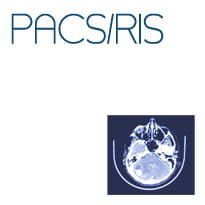Dell has launched its Unified Clinical Archiving solution in the UK, saying that it offers flexible, vendor neutral on-premises and cloud-based archiving.
The main focus for the product will be the NHS picture archiving and communications system market – which is beginning a market refresh as trusts look to replace or extend contracts from the era of the National Programme for IT in the NHS.
DanTrott, the product manager, told eHealth Insider that UCA offers an enterprise-level solution that covers DICOM PACS images and non-DICOM medical images, such as endoscopy and cardiology.
“A whole range of images can be stored in a single archive and made available for viewing on a range of devices,” he said.
Trott told EHI that Dell has already responded to a number of NHS PACS procurements. Dell’s cloud-based UCA solution, supported by the new data centre located in Slough, will be available in UK later this year.
“At the moment we are seeing NHS trusts going out to tender individually or collaboratively; UCA can work for either,” Trott added.
The NHS proof of concept site for UCA is City Hospitals Sunderland NHS Foundation Trust, which has deployed UCA as a pilot focused on archiving in ophthalmic imaging.
“The UCA solution has enabled clinical applications to allow our staff to spend more time with patients and on patient care rather than dealing with hard-copy images” said Andy Hart, director of IT and IG at the trust.
Dell says cloud-based archiving is a good option for hospitals that prefer not to build and maintain their own archive.
“By consolidating and moving archiving to the cloud with flexible per-study pricing, hospitals reduce data storage and retention costs and free up resources,” Dell said in a statement.
In addition to cost savings, claimed benefits are said to include: “Immediate, on-demand access to archived studies for comparisons means quick turn-around time on reads.”
Dell is also offering associated data migration services to simplify the transition to the private cloud for healthcare organisations, together with recovery and back-up services.
According to the company, an average 100-bed hospital performs 40,000 to 45,000 radiology exams annually, requiring up to 5 terabytes of image storage capacity a year.
Medical image data storage demand in Europe is expected to grow 70-80% annually through 2017, driven by the expansion of PACS to specialties beyond radiology and the growth of higher resolution imaging technology, including 3D imaging.
For example, one 256-slice scan can generate up to 7,000 images that must be retained for up to 25 years, depending on the age of the patient.

